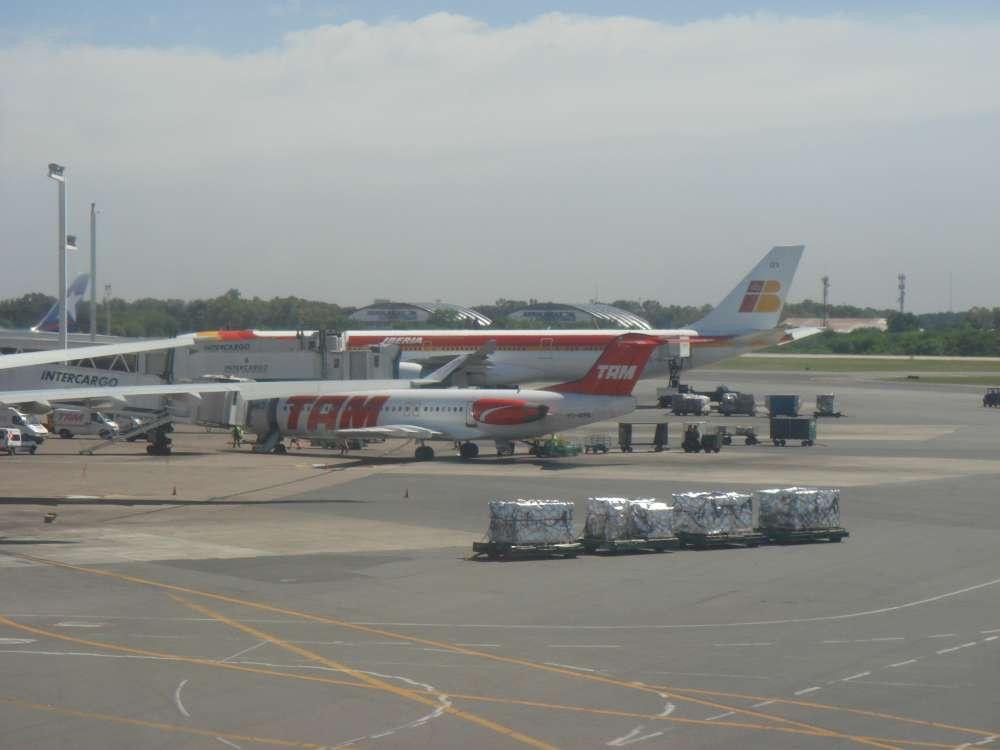Thirty four aircraft will be used for fleet renewal and expansion to meet the growing demand expected over the next 20 years.
São Paulo – The carrier announcesd the order of 32 aircraft from the Airbus A320 Family and two Boeing 777-300ER aircraft. They will use the new aircraft to renew and expand the fleet, which will strengthen operations in both the domestic and international markets. With this order, TAM prepare the company to meet the growing demand for air travel, while maintaining the high level of services offered to customers. The combined value of these new orders, based on list prices, is approximately US$ 3.2 billion.
Of the 32 aircraft ordered from Airbus, 22 are new model A320neo and ten are from the A320 Family. The aircraft will be delivered between 2016 and 2018. The engine option will be announced at a later date.
We are the first client in Latin America, and one of the first airlines in the world, for the A320neo aircraft. The new Airbus model has more efficient engines and an aerodynamic component located on each wingtip called Sharklets. These innovations result in significant savings in fuel consumption of up to 15%, which represents an annual reduction in carbon dioxide (CO2) emissions of up to 3,600 tons per aircraft. The A320neo also offers two-digit reduction in nitrogen oxides (NOx) emissions and considerable reduction in engine noise. The structure of the new aircraft will have more than 95% in common with the current products of the line, but will offer up to 950 km in additional range or two tons in additional payload capacity.
The two Boeing 777-300ERs will be delivered in 2014. This order of two more aircraft brings the total number of aircraft ordered from the U.S. manufacturer to eight, including four aircraft to be delivered in 2012 and two in 2013. Once all the aircraft are delivered, we will have 12 Boeing aircraft in our fleet.
With a spacious cabin and capacity to transport 362 passengers in three service classes, the B777-300ER is one of the world’s most efficient two-engine commercial jets. The model produces 22% less carbon dioxide per seat and its operational cost per seat is 20% lower. The B777-300ER’s maximum range is 14,685 km.
„The new aircraft manufactured by Airbus and Boeing will help us lower fuel consumption and gas emissions, making our operations increasingly more efficient and maintaining the Company´s high safety levels. This will translate into cost savings for our clients and increase the level of respect for the environment,“ said Líbano Barroso, the CEO of TAM Linhas Aéreas.
Robust market – Our fleet has an average age of between 6 and 7 years, one of the youngest in the world, and is equipped with the best and most advanced equipment and software options offered by the manufacturers. The fleet is currently composed of 152 aircraft, of which 140 are Airbus models (26 A319s, 86 A320s, 8 A321s, 18 A330s and 2 A340s), 7 are Boeing models (4 B777-300ERs and 3 B767-300s) and 5 ATR-42s used by Pantanal. Our fleet plan calls for ending the year with 156 aircraft and reaching the mark of 182 aircraft by the end of 2015.
We are already preparing for the years after 2015, given the growing demand for air travel, both domestic and international, which is expected to continue to register strong growth. Studies indicate that demand should continue growing over the next 20 years at an average annual rate of 9%, driven by both leisure and business travels.
In 2010, the demand for domestic flights increased by 23.5%, according to the National Civil Aviation Agency (ANAC). We estimate that in 2011, demand for commercial flights in the Brazilian market will grow by between 15% and 18%. „This year we will continue to optimize our costs by efficiently using our fleet in the domestic market, with supply growing from 10% to 14%. And in the international market our seat availability will grow by 10% with the launch of two new routes or frequencies,“ said Barroso.
Picture: Edgar Delmont



